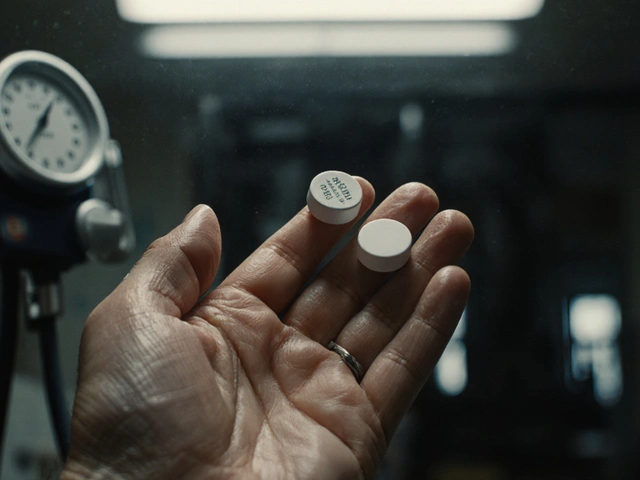Natural vs Synthetic: What You Need to Know
If you’ve ever stood in the pharmacy aisle wondering whether to pick a plant‑based supplement or a lab‑made pill, you’re not alone. People love talking about “natural” stuff, but synthetic drugs often have solid science behind them. Below we break down the basics so you can decide what fits your health goals.
How They’re Made
Natural products start from plants, minerals or animal sources. Think of a bottle of fish oil that’s extracted from salmon or a herbal tea made from dried leaves. Synthetic medicines are created in a lab by arranging atoms to match what the body needs. Sometimes scientists copy a natural molecule and improve it – like making aspirin from willow bark.
Safety and Side Effects
Many assume “natural” means safe, but that’s not always true. Some herbs can interact with prescription meds or cause allergic reactions. Synthetic drugs go through strict testing for dosage, purity and side effects before they hit the market. That doesn’t mean they’re risk‑free; every drug has a label of possible issues you should read.
One practical tip: always check if a product has been reviewed by a reputable authority (FDA, EMA, Health Canada). If it’s a supplement, look for third‑party testing like USP or NSF. This helps ensure what’s on the bottle matches what’s inside.
When it comes to effectiveness, synthetic medicines usually win because they’re designed to hit a specific target in the body. For example, a synthetic antihistamine will block histamine receptors more reliably than a herbal alternative that contains variable amounts of active compounds.
That said, natural options can shine for long‑term support. Omega‑3 fatty acids from fish oil have solid research showing heart benefits, and many people feel better with plant‑based fibers that improve gut health. The key is matching the product to your need – acute relief versus ongoing wellness.
Cost is another factor. Over‑the‑counter natural supplements often cost more per dose because they require harvesting, drying, and careful extraction. Synthetic drugs, especially generics, can be cheaper thanks to mass production. If you’re on a budget, compare prices per defined daily dose rather than just the bottle price.
Environmentally, natural sourcing can be a mixed bag. Sustainable farming reduces impact, but over‑harvesting wild plants can harm ecosystems. Synthetic production also uses chemicals and energy, so it’s not automatically greener. Look for certifications like “organic” or “responsibly sourced” if eco‑impact matters to you.
Bottom line: there’s no one‑size answer. Use natural products when they have clear evidence, good quality checks, and fit your lifestyle. Turn to synthetic medicines when you need precise dosing, quick action, or a condition that only a prescription can treat.
Next time you shop, ask yourself three questions – Is it proven? Is it safe for my other meds? Does the price make sense for the benefit I expect? Those simple checks will help you choose confidently between natural and synthetic options.
Natural vs. Synthetic Calcium Carbonate: What's The Difference?
Calcium carbonate comes in two forms: natural and synthetic, each with unique features. Natural calcium carbonate, often derived from limestone and marble, is eco-friendly but may carry impurities. Synthetic calcium carbonate, produced via chemical processes, offers purity and consistency, ideal for industries needing high-quality grades. Learn about their different properties, applications, and why they matter in various manufacturing processes.
About
Medications
Latest Posts


Udenafil in Bodybuilding: Myths, Facts, and Benefits
By Orion Kingsworth Sep 8, 2024

Caffeine Cutoff Times: When to Stop Coffee for Better Sleep
By Orion Kingsworth Dec 17, 2025

Medication Safety for Chronic Conditions: Essential Long-Term Use Tips
By Orion Kingsworth Jan 11, 2026

